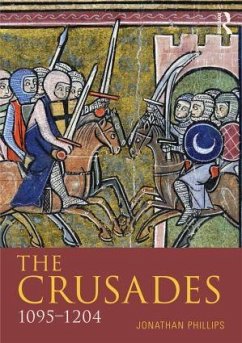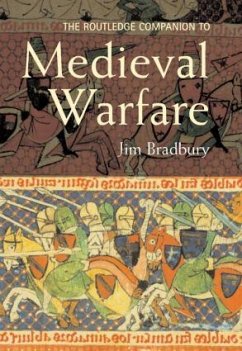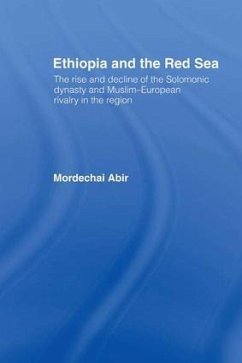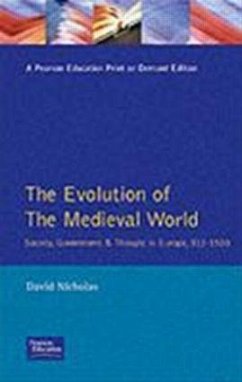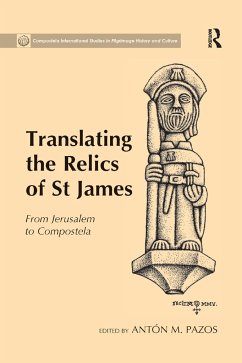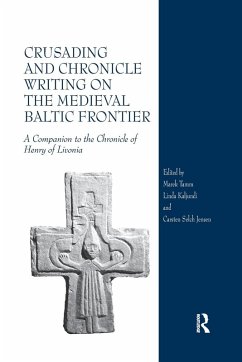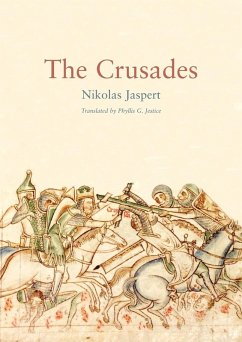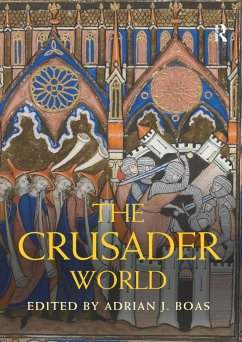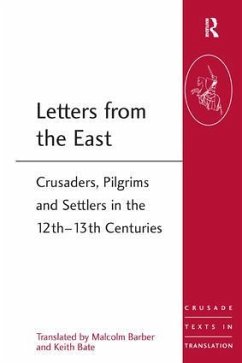
Nubia, Ethiopia, and the Crusading World, 1095-1402
Versandkostenfrei!
Versandfertig in 6-10 Tagen
43,99 €
inkl. MwSt.
Weitere Ausgaben:

PAYBACK Punkte
22 °P sammeln!
The Crusades had a wide variety of impacts on societies throughout Europe, Asia, and Africa. One such notable impact was its role in the development of knowledge between cultures. This book argues that the Nubian kingdom of Dotawo and the Latin Christians became increasingly more connected between the twelfth and early fourteenth centuries than has been acknowledged. Subsequently, when Solomonic Ethiopian-Latin Christian diplomatic relations began in 1402, they were building on the prior connections of Nubia, either wittingly or unwittingly: Ethiopia became the 'Ethiopia' that the Latin Christ...
The Crusades had a wide variety of impacts on societies throughout Europe, Asia, and Africa. One such notable impact was its role in the development of knowledge between cultures. This book argues that the Nubian kingdom of Dotawo and the Latin Christians became increasingly more connected between the twelfth and early fourteenth centuries than has been acknowledged. Subsequently, when Solomonic Ethiopian-Latin Christian diplomatic relations began in 1402, they were building on the prior connections of Nubia, either wittingly or unwittingly: Ethiopia became the 'Ethiopia' that the Latin Christians had previously been aiming to develop relations with. The histories of Nubia, Ethiopia, and the Crusades were directly and indirectly entwined between the twelfth century and 1402.
By placing Nubia and Ethiopia within the wider context of the Crusades, new perspectives can be made regarding the international activity of Nubia and Ethiopia between the twelfth and fifteenth centuries and the regional role reversal of Dotawo and Solomonic Ethiopia from the early fourteenth century. Prior to the fourteenth century, Nubia had been the dominant Christian power in the region before Solomonic Ethiopia began to replace it, including by adopting elements of discourse which had previously been attributed to Nubia, such as its ruler being the recognised protector of the Christians of north-east Africa. This process should not be viewed in isolation of the wider regional geo-political context.
Nubia, Ethiopia, and the Crusading World, 1095-1402 will appeal to all those interested in the history of the Crusades, Nubia, and Ethiopia, particularly concerning inter-regional physical and intellectual connectivity.
By placing Nubia and Ethiopia within the wider context of the Crusades, new perspectives can be made regarding the international activity of Nubia and Ethiopia between the twelfth and fifteenth centuries and the regional role reversal of Dotawo and Solomonic Ethiopia from the early fourteenth century. Prior to the fourteenth century, Nubia had been the dominant Christian power in the region before Solomonic Ethiopia began to replace it, including by adopting elements of discourse which had previously been attributed to Nubia, such as its ruler being the recognised protector of the Christians of north-east Africa. This process should not be viewed in isolation of the wider regional geo-political context.
Nubia, Ethiopia, and the Crusading World, 1095-1402 will appeal to all those interested in the history of the Crusades, Nubia, and Ethiopia, particularly concerning inter-regional physical and intellectual connectivity.





